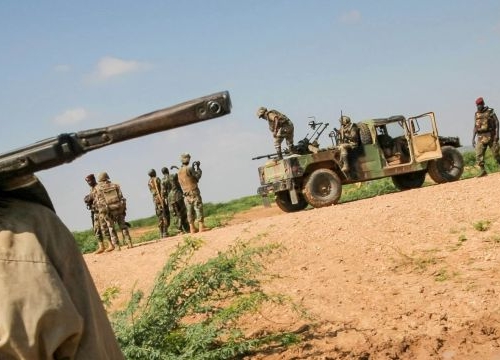First International Symposium on Youth Associated with Non-State Armed Groups
Event


AMISOM
The global population of individuals aged 15-29 has reached 1.8 billion, constituting 23 percent of the world's inhabitants. Youth are increasingly acknowledged as pivotal agents of positive change.
However, not all young individuals are situated in social contexts conducive to receiving appropriate support and fostering independence. Amongst these, Youth Associated with Non-State Armed Groups (YANSAG) stand out, having been marginalized from both policy and practice agendas focused on youth. Therefore, there is a need for a comprehensive understanding of YANSAG not merely recognizing it as a threat to society and the world, but also as a left-behind youth whose needs are not being met.
This symposium – co-organized with Accept International, the Ministry of Foreign Affairs of Japan and the Japan International Cooperation Agency – will examine the needs and obstacles of YANSAG from various perspectives and discuss them with global policymakers, practitioners, and YANSAG themselves about what we should do now and further as well as building a global network about YANSAG.
Based on our recent Research Paper Youth Associated with Non-State Armed Groups: Building an Evidence Base on Disengagement Pathways and Reintegration Challenges, it will explore the following topics in order to better comprehend YANSAGs' reality and to formulate strategies to address their unique needs:
- Approaches for YANSAG within the framework of youth empowerment, engagement, and youth, peace, and security agendas
- The rights of YANSAG.
- Justice and peace concerning YANSAG, acknowledging their transition from childhood even if some joined armed groups at an early age
- YANSAG considerations in the context of counterterrorism efforts
- Identification of the requisite evidence and data to guide future approaches to YANSAG
- Finding other aspects and ways to transfer the issue to mobilize more resources from various perspectives including the business sector
Programme
Discover here the full programme of the symposium.
Get Ready: Relevant Links









